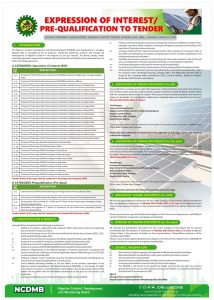BEVERLY HILLS, September 17, (THEWILL) – One of the world’s leading index providers and independent credit ratings agency, Standard & Poor’s, S&P, has downgraded Nigeria’s rating further from ‘B+’ to ‘B/B’, explaining Nigeria’s economy had weakened because of restrictive foreign exchange regime, a marked contraction in oil production, and delayed fiscal stimulus.
In its rating released on Friday, the agency noted that although Nigeria’s general government debt has remained low, debt servicing costs as a percentage of general government revenues was high and rising.
In view of this, S&P’s analysts stated that: “We are therefore lowering our long-term global scale ratings on Nigeria to ‘B’ from ‘B+’ and our long and short-term national scale ratings on Nigeria to ‘ngBBB/ngA-2’ from ‘ngA/ngA-1’.
“The stable outlook signals our assessments that at this lower rating the risks to the government’s credit standing are balanced. S&P Global Ratings lowered its long-term foreign and local currency sovereign credit ratings on the Federal Republic of Nigeria to ‘B’ from ‘B+’. We also affirmed our ‘B’ short-term foreign and local currency sovereign credit ratings on Nigeria. The outlook on the long-term ratings is stable.”
The agency also revised down Transfer and Convertibility, T&C, Assessment on Nigeria to ‘B’ from ‘B+’ as it explained that since its last review in March 2016, when it expected Nigeria’s economy would grow by at least three per cent between 2016 and 2019, the economy has weakened significantly.
According to the report, “Both the oil and non-oil sectors contracted markedly in the first two quarters of 2016. The oil sector narrowed the most in the second quarter, falling by close to 20 per cent year-on-year following intensified pipeline vandalism in the Niger Delta.
“Although oil price assumptions have remained unchanged since our last review, oil production levels have declined from an average of 2.1 million barrels per day (bpd) in the first quarter to an average of 1.7 million bpd in the second quarter.
“The non-oil sector, which has traditionally been a driver of economic growth, also dropped in both quarters, as industry and financial sectors continued to experience foreign currency shortages under the restrictive foreign exchange regime in the first six months of the year.
“The 2016 budget, which the authorities designed as a stimulus budget, was delayed for a number of months in the legislative process and only passed in the middle of the second quarter. Lower electricity output and overall rising prices have also contributed to the faltering economy.”
Based on these, S&P stated that it is now expecting a one per cent contraction in Nigeria’s real GDP growth in 2016, feeble growth of two per cent next year, and a return to higher growth of four per cent only from 2018.
“We believe that since passing the fiscal budget, government spending together with liberalization of the interbank foreign exchange market, may boost the economy and spur positive GDP growth next year. Oil production in the third quarter has remained weak but may improve in the fourth quarter and next year as the government negotiates with militants and sabotaged pipelines are repaired, mainly Shell’s Forcados export pipeline with a capacity of around 300 thousand barrels per day.
“Due to the naira’s devaluation in mid-2016, we now expect Nigeria’s wealth, measured by GDP per capita, will average $2,000 in 2016. Nevertheless, we think that medium term, prospects could brighten with a rebound in the oil price, as well as government reforms across the economy.
“Although the country is a sizable producer of crude, the oil sector’s share of Nigeria’s GDP is small relative to those of other oil economies, at about 10 per cent. Consequently, in the next few years, the economy may be able to adjust to a subdued oil price or production shocks. Although NNPC is considering alternative funding models over the next few years, we understand it plans to clear its arrears this year–about US$6 billion (1.5% of GDP) accumulated in 2015–with its international oil companies’ joint venture partners.
“This financing strategy, if passed by parliament, involves charging the federal escrow account as part of cost of production to clear the arrears to international oil companies,” the leading index providers added.






